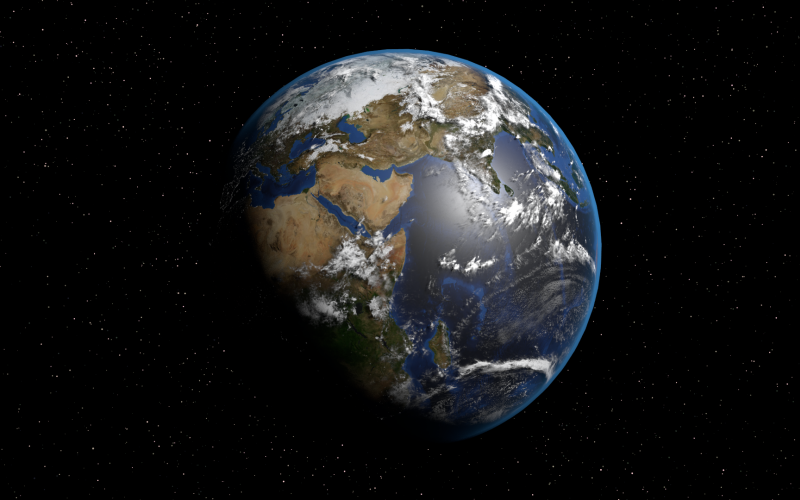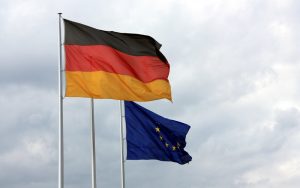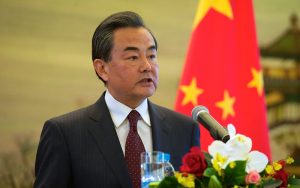When in November 2019 Ursula von der Leyen, then Candidate for European Commission President, now elected European Commission President, outlined her six political priorities for the next five years of her Commission, she made sure to emphasize that she aspires to lead a “geopolitical Commission”. The aim was to strengthen the European Union’s standing as an international actor, which was summarized under “A stronger Europe in the world” and is one of the six key priorities of this Commission. The other five priorities are: A European Green Deal; A Europe fit for the digital age; An economy that works for people; Promoting our European way of life; A new push for European democracy.
However, when the incoming Commission announced its branding as “geopolitical”, it remained unclear why it sold itself as such, as argued in an article by the European Policy Center (EPC). The EPC further explains that, while the notion Geopolitics is typically” used to define and explain the behaviour of a state in relation to its geographic location”, applying the term in the context of EU politics goes to show that the EU increasingly steps into a place that was usually occupied by nation-states. Most likely, the EU’s geopolitical work will focus on the EU external action and relations to other states. Given the current political reality, the timing for this “geopolitical commission” does also not come as a surprise.
But is the EU really ready to act as a geopolitical actor or even a geopolitical power?
The answer is: Probably not. While the EU is active all around the globe, a major economic power, the worlds’ largest trading block, and actively working on various issues in different regions, that by far does not necessarily make it “geopolitical”.
Moreover, several issues compromise its foreign policy and external actions, and thereby its “geopolitical” actorness.
Above all, the divergences of several member states and the fact that there is no unanimous line on specific foreign policy issues impede its ability to act as a global power and truly geopolitical actor.
In addition, the EU is slow to act, primarily also because consensus for specific actions in its external policies is hard to achieve.
Also, Brexit might impact the EU’s standing as a geopolitical actor. While it might unblock certain blockades in discussions around foreign and security policy and resolve disputes, the United Kingdom’s exit from the EU, being a United Nations Security Council member and among the EU’s biggest military powers, may still leave a significant vacuum.
Lastly, the EU is not a military power, and it is highly unlikely that it might evolve into one soon. Its geopolitical power and actorness are therefore reliant on its soft power and economic appeal to achieve its geopolitical goals, as Project Syndicate rightly argues.
Truth be told: The EU consists primarily of a range of smaller countries, who neither aspire nor have the capabilities to step up and act more globally and geopolitically. While the EU is undoubtedly an attractive (economic) actor for third countries, its standing as a geopolitical actor is relatively low.
To transform the EU into a geopolitical actor, it must come to terms with the fact that the Common Foreign and Security Policy needs a serious and comprehensive revision. Moreover, EU member states need to act more coherent to resemble a coherent foreign policy and geopolitical actor. Otherwise, the notion of a “geopolitical commission” and “geopolitically oriented EU” will remain an appealing slogan, but the EU will fail to deliver on its promises.
Sources European Commission: The European Commission’s priorities, 6 Commission priorities for 2019-24, https://ec.europa.eu/info/strategy/priorities-2019-2024_en European Parliament (2020): The von der Leyen Commission’s priorities for 2019-2024, https://www.europarl.europa.eu/RegData/etudes/BRIE/2020/646148/EPRS_BRI(2020)646148_EN.pdf Gros, D. (2019): What EU “Geopolitical” Power Will Cost, Project Syndicate, https://www.project-syndicate.org/commentary/eu-geopolitical-commission-economic-power-by-daniel-gros-2019-12 Subotić, S. (2019): A “Geopolitical” Commission – What’s in the Name?, European Policy Centre, https://cep.org.rs/en/blogs/a-geopolitical-commission/








Be First to Comment